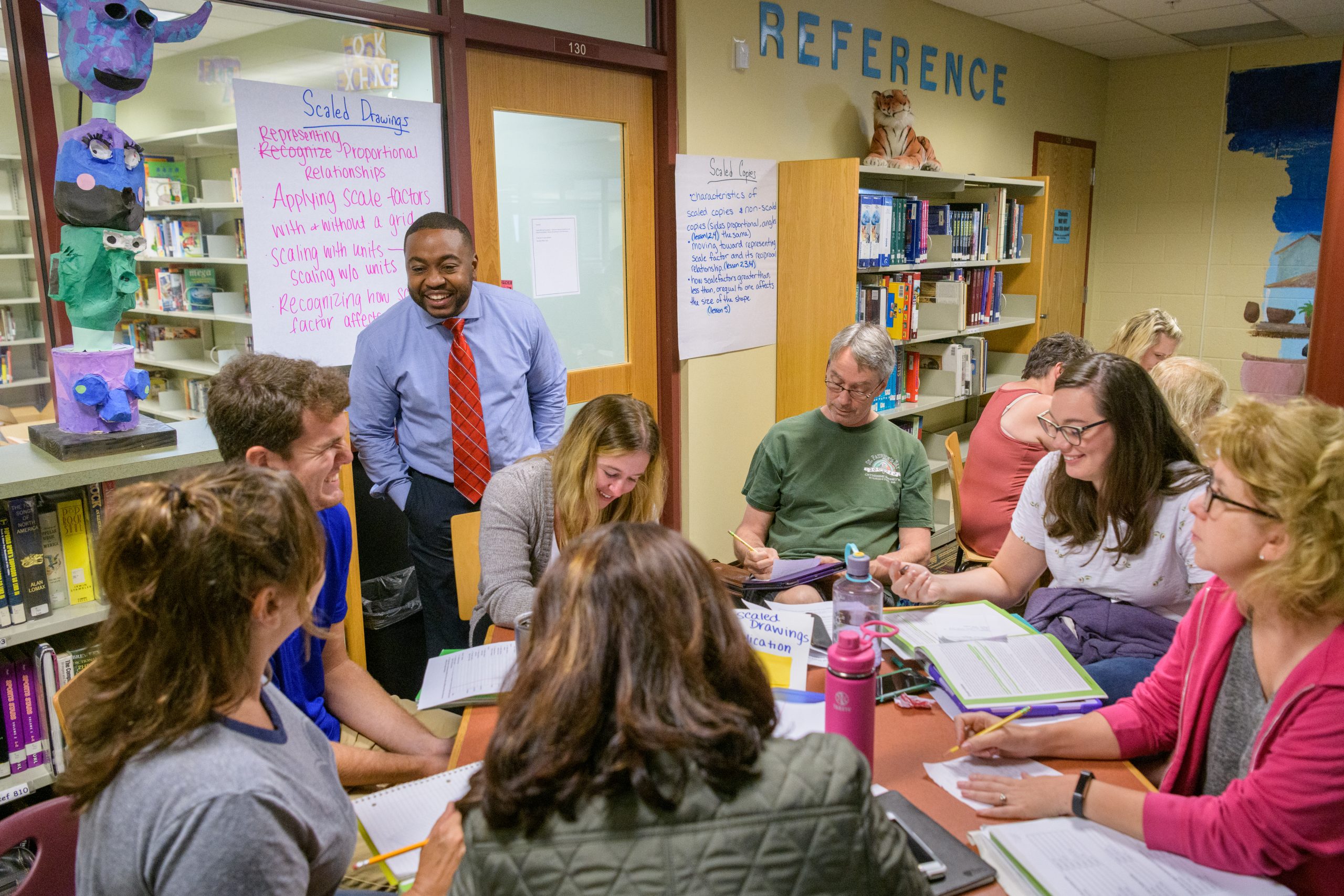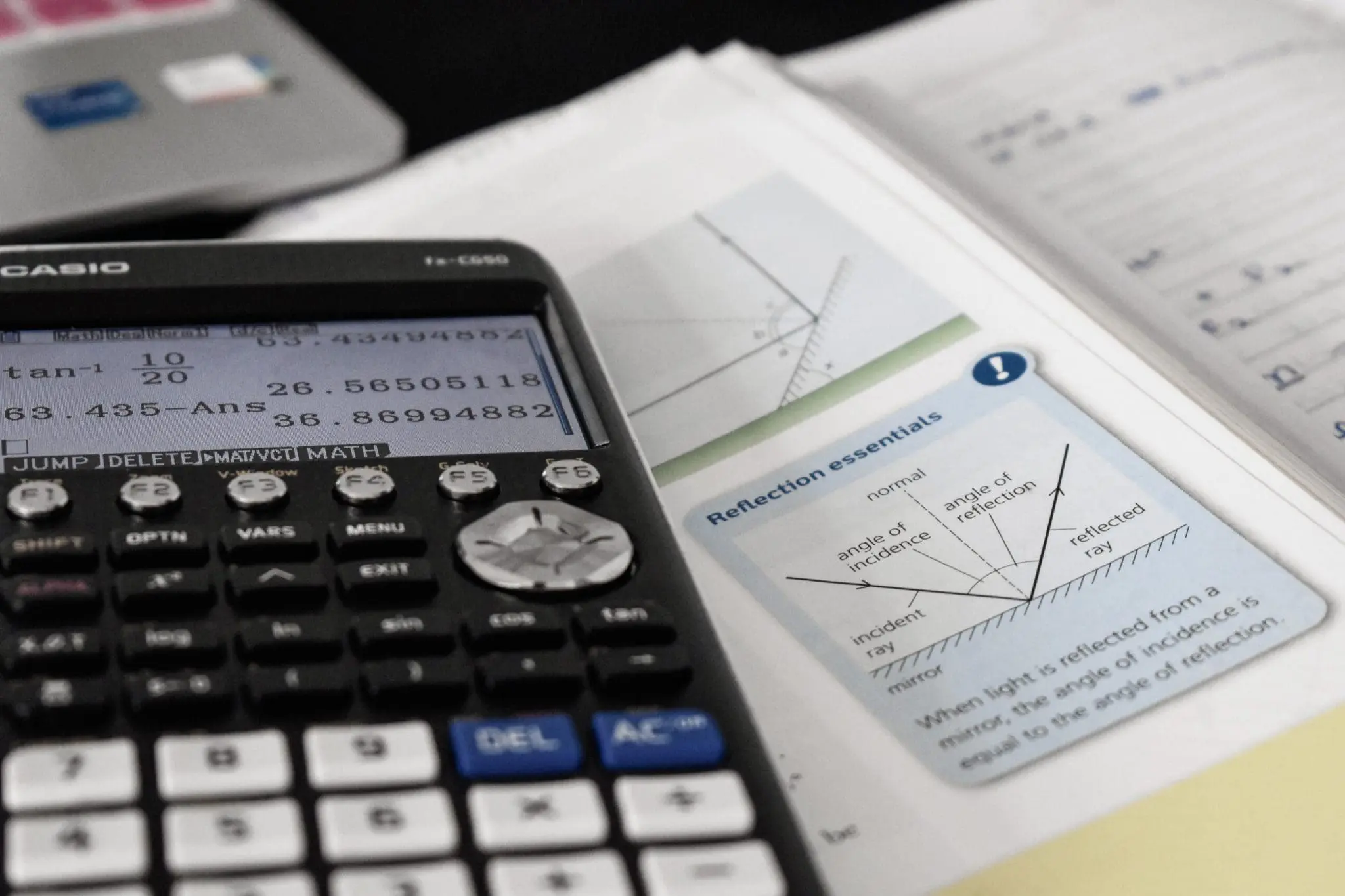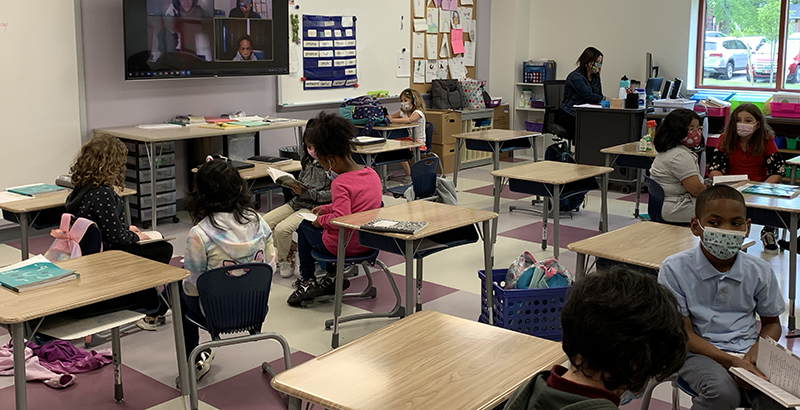UD emphasizes partnership and collaboration with Delaware schools in School Success Center event
More than 140 Delaware school leaders, district partners, government representatives and University of Delaware faculty and staff attended the launch of UD’s School Success Center (SSC) on Friday, Oct. 21, demonstrating a shared commitment to school success in Delaware.
Housed in the College of Education and Human Development, the SSC brings together UD’s Professional Development Center for Educators (PDCE), known for its excellence in instructional support, and the Delaware Academy for School Leadership (DASL), known for its excellence in leadership preparation. Through a new systemic approach, the SSC will offer comprehensive and integrated support to Delaware’s schools and districts to help improve student and school outcomes.
With an emphasis on partnership and collaboration, the event introduced attendees to the SSC and showcased the college’s teacher and leader preparation initiatives, support services for education students and faculty research addressing critical needs in schools.
Partnering in School Success
In his opening remarks, Gary T. Henry, dean of CEHD and professor in the School of Education (SOE) and the Joseph R. Biden, Jr. School of Public Policy and Administration, pictured above, welcomed attendees and shared how the SSC will help schools and districts grow together in their school improvement efforts.
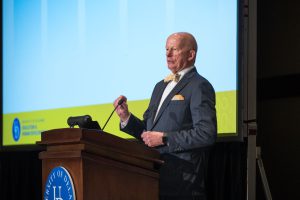
Henry noted that PDCE and DASL have helped schools make impressive gains in student and school-level achievement and focus on equity, climate and culture. But, in separating these teams, the college wasn’t optimizing its efforts in school improvement.
“One important key to any school improvement effort — which we’ve seen in both research and practice — is ensuring that both teachers and school leaders are growing together in terms of their understanding of the curriculum and their ability to implement that curriculum,” Henry said. “Research shows that the first step in achieving school success is increasing the capacity of both teachers and leaders, then exercising that enhanced capacity to build a positive environment for teaching and learning and enhance peer collaboration.”
Throughout his remarks, Henry emphasized the importance of partnerships with schools, noting that school success often depends on collaboration among all parts of the education system.
“To be successful, this work will take all educators and staff in the building working together with the support of the district and the state,” Henry said. “Through our SSC, we plan to continue our existing partnerships and develop new and deeper ways of partnering with Delaware public, charter and independent schools to enhance the capacity for instruction and leadership and deliver coaching in literacy, math and leadership. We also look forward to engaging with you in designing and implementing school success strategies based on research and adapted to meet local needs.”
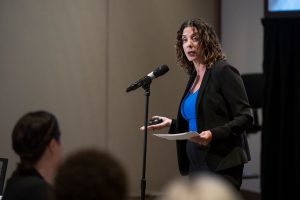
Engaging faculty presentations from Erica Litke, associate professor in the SOE, Roderick L. Carey, assistant professor in the Department of Human Development and Family Sciences, and Joshua Wilson, associate professor in the SOE, similarly highlighted partnerships with Delaware teachers and schools as they discussed research projects addressing critical educational needs.
Litke illustrated an alternate way to think about algebra instruction, emphasizing a focus on content, equitable teaching practices and aligning these methods with instructional practices already in place in Delaware schools.
Carey shared insights from his Black Boy Mattering project, a unique school-based research partnership that acts like a think-tank for high school Black boys. This project helps school community members foster positive relationships with Black students who feel marginalized so that these individuals know their worth, importance and significance.
Wilson showed how automated writing evaluation software can help students develop writing proficiency by offering immediate feedback to students and creating more space in teachers’ schedules for writing instruction.
After the faculty presentations and lunch, attendees spent the afternoon in conversation with UD faculty, staff and each other as they learned about CEHD’s teacher and leader preparation initiatives and enjoyed six new ice cream flavors from UD’s UDairy Creamery.
Enthusiastic responses to the School Success Center
With a UD ice cream scooper in hand, many attendees communicated enthusiasm about the event and looked forward to the work of the SSC.
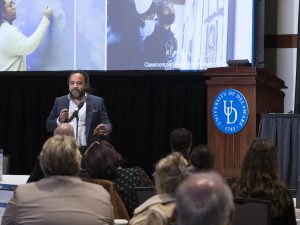
Michael Saylor, director of educator excellence in the Delaware Department of Education, appreciated the SSC’s integrated model of support and emphasized the importance of collaboration in school improvement efforts.
“Merging PDCE and DASL to create the SSC supports current research on improvement,” Saylor said. “We know that we need strong instructional leaders in our schools that can support their teachers in strong pedagogy. The new center models this comprehensive approach. Supporting schools takes collaboration and breaking down silos.”
Jeffrey Menzer, superintendent of Colonial School District, noted that he looked forward to future partnerships with UD through the SSC.
“It was exciting to learn about the University’s effort to transform its support of public education through the realignment of two long standing programs into the SSC,” Menzer said. “Colonial is looking forward to the opportunity to partner with the SSC. The three faculty presenters at the event last Friday were excellent examples of the power of these partnerships.”
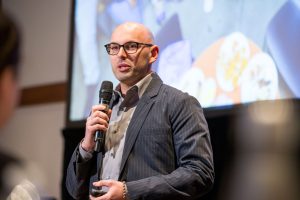
As the coordinator of the teacher induction program and teacher recruitment for Red Clay Consolidated School District, Stephanie Armstrong supports novice staff, year-long interns and student teachers in all aspects of their educational preparation. She communicated appreciation about the SSC’s mission and the event’s networking aspect.
“The ability to collaborate with colleagues in a comfortable forum was meaningful and welcomed,” Armstrong said. “Friday’s event allowed me to discuss methods for sustaining year-long student residents in Red Clay Schools through the UD SSC. The vision of the SSC is one much needed in our state as we address the declining interest in the teaching profession. I am excited for Red Clay to continue its partnership with the University and look forward to watching the professional relationship flourish.”
To partner with UD or learn more about the SSC, visit www.udel.edu/schoolsuccess.
Read this article on UDaily.
Article by Jessica Henderson Photos by Kathy F. Atkinson and Shelly Silva November 02, 2022.





